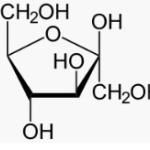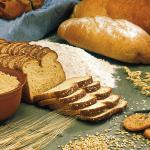Apricot kernels are still all the rage in homeopathic remedies-- largely marketed for their source of protein, vitamins, and carbohydrates. But alas, their chemical compound hasn't wavered.
carbohydrates
It was once just innocent fruit sugar, but fructose now vies for the number one slot as the world’s biggest, baddest nutrient, making us fat and sick. Which is all nonsense of course…
No need to fear fructose!
In the kitchen, the phrase "slow and low" refers to the best way to barbeque, that being over very low heat for a long time, leaving you with a mouthful of goodness.
Food and nutrition companies always capitalize on whatever fad diets are currently in fashion to shamelessly promote their products. Science is of secondary concern, if it's a concern at all.
So you have to give up something for lent? Don't pick carbs. You may think it's a good idea with the added benefits of weight loss, but that's hardly the case. If you do, expect flu-like symptoms.
The glycemic index (GI) is a number supposedly corresponding to a carbohydrate-containing food s effec






